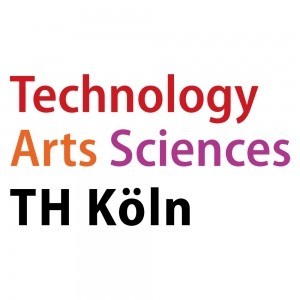Photos of university / #imperialcollege
The MSc in Computing — Games, Vision and Interaction at Imperial College London is a cutting-edge postgraduate program designed to equip students with advanced knowledge and practical skills in the fields of computer graphics, computer vision, human-computer interaction, and game design. Delivered by one of the world’s leading technical institutions, this programme offers a comprehensive curriculum that bridges theoretical foundations with real-world applications, preparing graduates for careers in innovative technology companies, research, and academia.
Throughout the course, students will explore core topics such as computer graphics, machine learning, computer vision, virtual and augmented reality, and interaction technologies. Emphasizing hands-on experience, the programme incorporates practical projects, lab work, and collaboration with industry partners, enabling students to develop a portfolio of work demonstrating their technical expertise and creativity. The curriculum is designed to foster critical thinking and problem-solving abilities, encouraging students to tackle complex challenges in visual computing, gaming, and interactive media.
Imperial College provides access to state-of-the-art facilities, including dedicated labs equipped with the latest hardware and software tools essential for research and development in visual and interactive computing. Students will benefit from the university’s strong links with industry and research institutions, gaining insights into current trends, emerging technologies, and opportunities in the rapidly evolving fields of games development and human-computer interaction.
The programme is suitable for graduates with a background in computer science, engineering, or related disciplines who wish to specialize further in the areas of visual computing, game development, and user interface design. Graduates will be prepared to innovate in areas such as entertainment technology, simulation, autonomous systems, and augmented reality applications. With a focus on both technical proficiency and creative problem-solving, the MSc in Computing — Games, Vision and Interaction aims to shape the next generation of researchers, developers, and designers revolutionizing the way humans interact with digital systems.
The MSc Computing — Games, Vision and Interaction program at Imperial College London is a cutting-edge postgraduate degree designed to equip students with advanced knowledge and practical skills in the rapidly evolving fields of computer graphics, computer vision, human-computer interaction, and game development. This interdisciplinary course combines theoretical foundations with real-world applications, preparing graduates for careers in gaming industry, virtual and augmented reality, visual effects, robotics, and artificial intelligence.
Throughout the program, students explore a variety of topics including computer graphics algorithms, interactive media design, machine learning for visual data, scene understanding, and user-centered interface design. The coursework emphasizes both foundational principles and innovative technologies, encouraging students to develop creative solutions to complex problems. Students gain hands-on experience in programming and software development, working extensively with modern tools and frameworks used in industry.
The curriculum is structured around core modules that cover essential topics such as Computer Graphics, Computer Vision, and Human-Computer Interaction, complemented by optional modules that allow students to specialize further in areas like machine learning, virtual reality, or interactive systems. Projects and team-based assignments are integral to the program, fostering collaboration and practical problem-solving skills critical for professional success.
In addition to technical expertise, the program emphasizes research methodologies, project management, and the importance of ethical considerations in technology development. The final stage of the program involves a substantial research project, enabling students to apply what they have learned to real-world problems, often in collaboration with industry partners or research labs.
Imperial College’s close ties with industry leaders and cutting-edge research centers provide students with valuable networking opportunities, internships, and exposure to current industry challenges. The program’s location in London also offers access to a vibrant tech ecosystem, facilitating engagement with startups and established companies alike.
Graduates of the MSc Computing — Games, Vision and Interaction program emerge well-prepared for careers in academia, research, or as technical specialists within the gaming, entertainment, robotics, healthcare, and technology sectors. They are equipped with both the theoretical grounding and practical experience necessary to innovate and lead in the fields of visual computing and interactive systems, making them highly desirable in the competitive job market for digital and interactive technologies.
Program requirements for the MSc in Computing — Games, Vision and Interaction at Imperial College London typically include a strong foundational academic background in computer science or related disciplines, demonstrated through a relevant undergraduate degree such as BSc or equivalent. Applicants are expected to have achieved a high standard of academic performance, generally at least a 2:1 or its overseas equivalent. Proficiency in English language is mandatory, with acceptable tests including IELTS with a minimum overall score of 6.5, or TOEFL with a minimum score of 92 internet-based. Prior experience or coursework in areas such as computer graphics, human-computer interaction, machine learning, or visual computing can be beneficial. As the programme is research-oriented, applicants should possess problem-solving skills, creativity, and a strong interest in the fields of computer vision, game development, and interactive systems. Submission of a personal statement demonstrating motivation, relevant experience, and career aspirations is required, along with two academic references attesting to the applicant's suitability for postgraduate study. The selection process considers academic achievements, relevant work or research experience, and the potential to succeed in a rigorous technical environment. While work experience is not mandatory, applicants with relevant internships or research projects in related fields are encouraged to apply. The programme may also require a CV outlining academic and professional history. Additional requirements may include an interview or a coding assessment, especially for applicants whose educational background is less directly aligned with the programme's core topics. Successful applicants will be expected to demonstrate a strong quantitative and programming background, coupled with enthusiasm for innovative research and practical applications in gaming, computer vision, and user interaction. The program aims to admit students from diverse backgrounds, fostering an inclusive academic community dedicated to advancing knowledge and technology in interactive systems and visual computing.
The MSc in Computing — Games, Vision and Interaction at Imperial College London offers a comprehensive and innovative approach to studying advanced concepts in computer science with a focus on games, visual perception, and human-computer interaction. Tuition fees for international and UK students vary and are updated annually; for the academic year 2023-2024, the indicative tuition fee for full-time international students is approximately £35,000. UK (home) students benefit from considerably lower fees, around £12,500 for the same year. Funding for students pursuing this programme can come from various sources, including government loans, scholarships, bursaries, sponsorships, and personal savings.
Imperial College London offers a range of scholarships specifically aimed at supporting postgraduate students. These include the Imperial College PhD Scholarships, Imperial College President's Scholarships, and departmental-specific awards, which may cover partial or full tuition fees, as well as living expenses. Prospective students are encouraged to explore eligibility criteria and application deadlines on the university’s official website. Additionally, students may seek external funding sources such as Research Councils UK (RCUK), Chevening Scholarships, Commonwealth Scholarships, and private sector sponsorships. Many governments also provide loan schemes to support international students studying abroad, with repayment structures contingent on income levels after graduation.
The university's Career Services provide financial advice and guidance on funding options throughout the application process. Many students also consider part-time work opportunities, internships, and research assistant positions to supplement their income. Imperial College London has partnerships with tech companies, research institutions, and industry players, which can sometimes facilitate sponsored projects or internships that include financial support. The programme’s strong emphasis on employability and industry connections increases opportunities for students to secure funding through fellowships, industry-sponsored scholarships, or grants aimed at supporting research and development activities.
In sum, funding for the Computing — Games, Vision and Interaction MSc can be secured from a combination of university scholarships, government loans or grants, external fellowships, and personal or family contributions. The investment in this cutting-edge programme is supported by a range of financial aid options designed to make postgraduate education accessible to talented individuals from diverse backgrounds. Accurate and current information on tuition fees, scholarships, and funding options can be obtained directly from the Imperial College London official website and the university’s financial aid office.
The MSc in Computing — Games, Vision and Interaction at Imperial College London is an advanced postgraduate program designed for students interested in the intersection of computer science, interactive entertainment, computer vision, and human-computer interaction. This course aims to equip students with the technical expertise and creative skills necessary to develop innovative interactive applications, immersive games, and intelligent systems that leverage the latest advancements in computer graphics, machine learning, and sensory technologies.
The curriculum offers a blend of theoretical foundations and practical project work, ensuring graduates are well-prepared for careers in the gaming industry, virtual reality, augmented reality, and related fields. Core modules typically cover topics such as computer graphics, game development, perception, computer vision, and interaction design, alongside optional modules allowing students to tailor their studies to specific interests within the broader theme.
Students have opportunities to engage in cutting-edge research projects, often collaborating with industry partners and participating in hands-on workshops. The program emphasizes interdisciplinary approaches, encouraging experimentation with novel interaction paradigms and the integration of sensory feedback mechanisms. Facilities include specialized laboratories equipped with the latest hardware and software tools for graphics rendering, motion capture, and immersive multimedia experiences.
The academic staff comprises leading researchers and practitioners in fields related to computer vision, human-computer interaction, and game technology. The program prepares students for diverse career paths, including game development, research and development in entertainment technology, human-centered computing, and further academic research. Graduates benefit from Imperial College’s strong links to industry, enabling networking opportunities, internships, and employment prospects in high-tech sectors worldwide.
Entry requirements typically include a strong background in computer science, software engineering, or related disciplines, with applicants expected to demonstrate programming skills and a demonstrable interest in interactive media. The program duration is generally one year full-time, with options for part-time study. Graduates are awarded an MSc degree, which is recognized globally for its rigorous approach and innovative content. The course's integration of technical, creative, and scientific perspectives produces versatile graduates capable of leading developments in the rapidly evolving fields of gaming, computer vision, and human-computer interaction.







